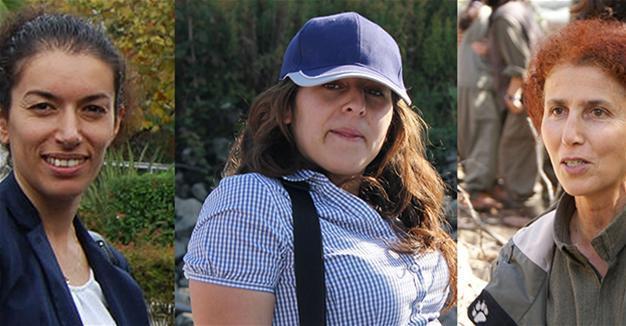Suspect in Paris murder of three Kurdish women dies
PARIS

A Turkish national charged with murdering three Kurdish women in Paris died on Dec. 17, a French judicial source said, 36 days before his case came to trial.
Ömer Güney died at a hospital in the French capital following a battle with a serious brain illness, the source told the AFP.
Güney, 30, was the only suspect sent for trial, scheduled to start next month, on charges of killing Sakine Cansız, a co-founder of the outlawed Kurdistan Workers’ Party (PKK); Fidan Doğan, a spokeswoman for the organization in France and Europe; and a trainee named Leyla Söylemez at the Kurdistan Cultural Center in Paris on Jan. 9, 2013.
Güney denied involvement in the killings, though investigators said they had surveillance footage of him entering the crime scene and one of the victim’s DNA was allegedly found on his coat.
Responding to the news of his death, lawyers for the families of the victims issued a statement expressing the “anger of the families of the victims, deprived of a public trial for which they had waited for nearly four years; families, who had placed their hopes in the French justice system.”
The families of the victims expressed their “consternation to see that, once again, France is still not able to judge a political crime committed on French territory by foreign secret services,” according to the statement signed by lawyers Sylvie Boitel, Antoine Comte, Virginia Dusen, Jan Fermon and Jean-Louis Malterre.
A judicial source told the AFP that French investigators had concluded that members of the Turkish secret service, MIT, were “implicated” in the triple murder.
But the investigations did not establish whether these agents acted “with the backing of their superiors” or “without the knowledge of the secret service in order to discredit or harm the peace process.”
In January 2014 the Turkish intelligence services officially denied any role in the killings.
Peace talks between the government and the jailed leader of the PKK, Abdullah Öcalan, were ongoing at the time of the murders.
 A Turkish national charged with murdering three Kurdish women in Paris died on Dec. 17, a French judicial source said, 36 days before his case came to trial.
A Turkish national charged with murdering three Kurdish women in Paris died on Dec. 17, a French judicial source said, 36 days before his case came to trial.